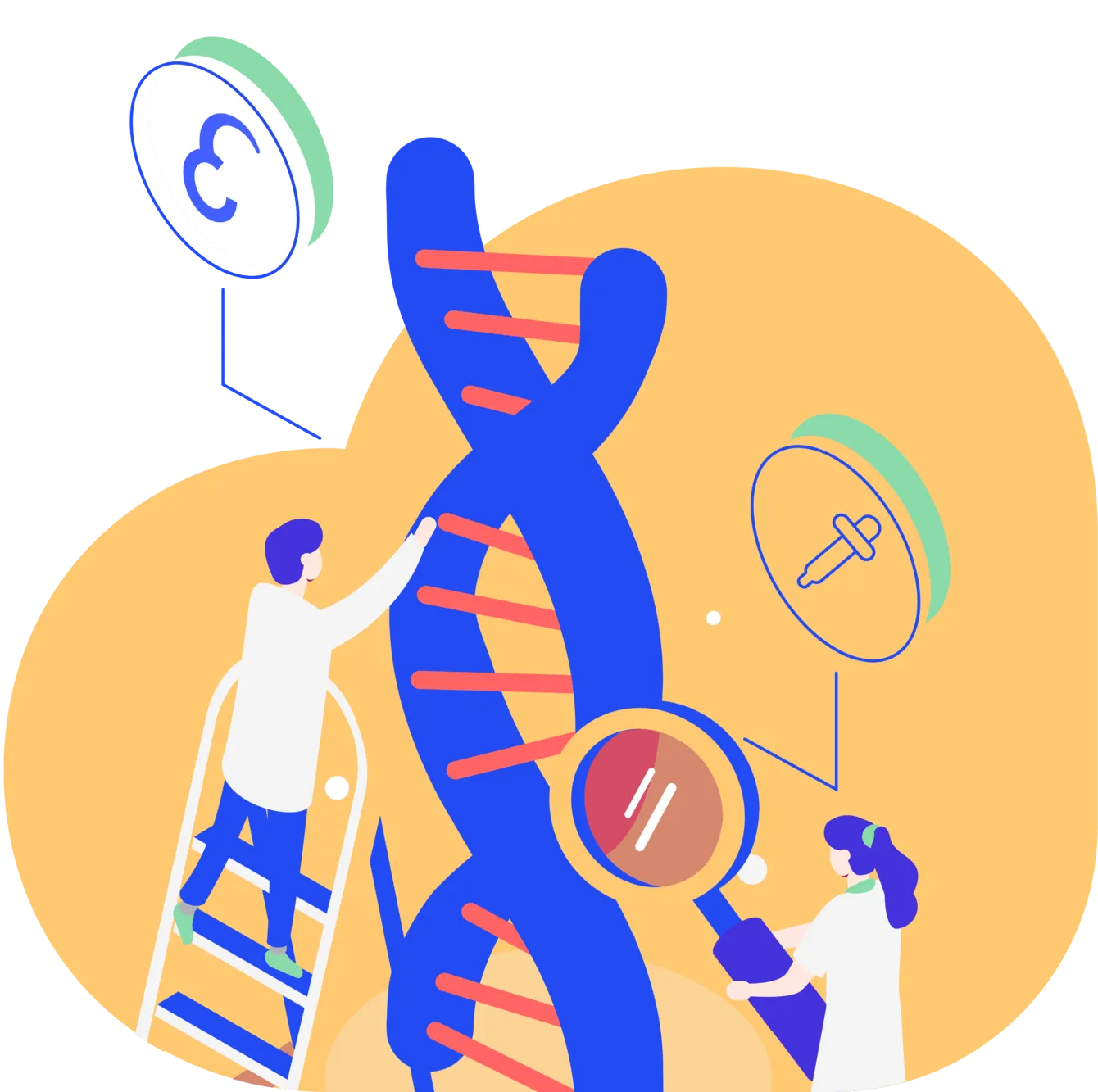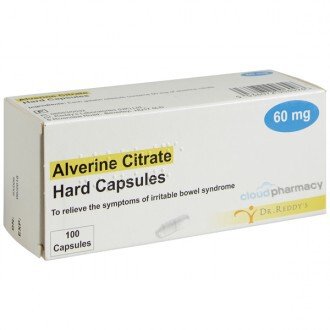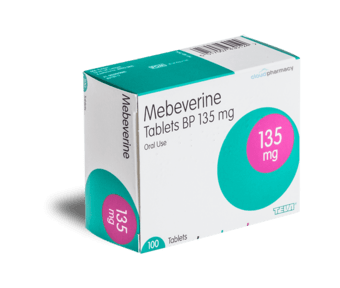IBS Treatment

More information
Introduction
Effective IBS Treatment Online
You can buy IBS treatments from our UK-registered online prescribing and pharmacy service. IBS is one of the most common conditions of the digestive system. Around 10-20% of people in the UK suffer from it. Symptoms include stomach cramps, bloating, diarrhoea, and/or constipation. Some people will experience mild symptoms, while others experience severe symptoms that affect their quality of life.
With Cloud Pharmacy, our online prescribers can provide prescription-strength treatments like Mebeverine, Colpermin, and Alverine. Once you have completed the online consultation, our prescriber will review your assessment and prescribe medication if it is appropriate. Our pharmacy will then dispense and deliver the prescription to your door.
Treatments
More information
Once an online consultation has been been approved by our medical team, our pharmacy will safely prepare and ship your treatment to you in discreet packaging using Royal Mail or DPD.
What Is IBS?
Irritable Bowel Syndrome or IBS is a common condition that affects the digestive system. The symptoms vary from stomach cramps, bloating, constipation and diarrhoea. This condition normally affects individuals throughout their lives. It can be debilitating and cause issues daily.
A typical episode of IBS can last for just a few days. For others, these episodes can be prolonged-lasting up to a few months at a time. Experiencing bouts of IBS is often linked with times of stress, or from eating certain trigger foods.
Irritable Bowel Syndrome is a long-term condition, although symptoms have been known to improve over a number of years. While there is no cure for IBS, treatments are available to manage the symptoms. These can include dietary modifications or pharmaceutical therapies.
Irritable Bowel Syndrome is not uncommon. The condition is estimated to affect up to one in five people at some point in their life. It typically develops between the ages of 20 and 30 and around twice as many women are affected as men.
What Causes IBS?
While the exact cause of the condition is not known, there are several theories about the underlying reasons for IBS. Firstly, some suggest the ailment could result from atypical interactions between the brain and the gut.
Typically, those with IBS experience altered colonic mobility, which has caused some to postulate that disrupted communication between the brain and the digestive system could be at fault. Such interactions could be impeded by genetic factors, infections or stressful life events.
Another suggestion is an imbalance of gut bacteria. Our digestive system is home to trillions of bacteria, which play a crucial role in the digestion and uptake of nutrients. They may also play a role in the physical attributes of the gut such as motility. The role of bacteria in the digestive system has led some to speculate that IBS symptoms could be caused by the gut’s bacterial composition.
The physical processes involved in IBS can also vary, but may consist of:
- Slowed or spastic movements of the colon, causing painful cramping
- Abnormal serotonin levels in the colon, affecting motility and bowel movements
- Mild coeliac disease that damages the intestines, causing IBS symptoms
What Does IBS Feel Like?
Typically, those who are affected by IBS will experience “attacks” where symptoms will manifest. These attacks can be painful, causing cramps and disruptions to frequent bowel movements. Many people report that bloating, discharge or signs of indigestion can also occur during these attacks. These symptoms may also be more uncomfortable for women during menstrual periods. While IBS can cause significant pain and discomfort, it rarely contributes to other health problems or long-term gut damage.
IBS Symptoms
IBS can display a wide array of symptoms among those affected by the condition. These include stomach pain, bloating, constipation and diarrhoea. The symptoms can come and go over time, but the attacks can last anywhere from days to weeks to months at a time. This includes:
- Diarrhoea
- Back pain
- Bloating
- Constipation
- Stomach pain
IBS Diarrhoea
IBS with diarrhoea (IBS-D) is a common symptom experienced by those living with the condition. Diarrhoea could refer to loose, watery stools or excessively frequent bowel movements. This is one of the symptoms most commonly associated with the condition. It can manifest as chronic or recurring bouts of diarrhoea.
IBS Back Pain
Many people who suffer from IBS experience extraintestinal symptoms. One of the more common issues that aren’t related to the digestive system is back pain. Studies estimate that anywhere from 28-81% of those with IBS experience back pain.
Some suggest that this pain could be referred to as pain, for example, pain that originates from elsewhere in the body. However, it may also be the case that symptoms such as excessive gas or intestinal bloating could contribute to back pain through deformation of the spine.
IBS Bloating
Patients with irritable bowels give a surprisingly consistent account of bloating associated with attacks. Individuals generally report that their stomach is relatively flat in the morning, but they experience increasing abdominal distention throughout the day. While this will often take hours to manifest, rapid bloating over a few minutes isn’t uncommon.
Patients typically experience this system after eating. Additionally, many women with the experience report their bloating is worse in the week leading up to their period.
IBS Constipation
IBS with constipation (IBS-C) is another common symptom associated with the condition. Like diarrhoea, constipation can refer to several different issues with the digestive system. Constipation can take the form of infrequent bowel movements, difficulties passing stools or the sensation of wanting to go but being unable to.
Many people fluctuate between IBS-D and IBS-C over time. There can also be periods where these symptoms flare up or disappear between attacks.
IBS Stomach Pain
While many people refer to the pain associated with IBS as “stomach pain”, it is probably more accurate to call it “abdominal pain”. The abdomen is the area between the hips and the chest. Pain in this region can manifest as cramp-like symptoms, a stabbing sensation or a migraine in the abdominal area.
IBD vs IBS
Inflammatory bowel disease (IBD) is medically distinct from IBS. Generally, IBD is a term used to categorise two conditions: ulcerative colitis and Crohn's disease. These are long-term conditions that result in inflammation of the digestive system. It is possible to have IBS and IBD simultaneously.
While the IBD and IBS share some common symptoms, as they are both chronic conditions that can cause pain, swelling, cramping and atypical bowel movements. Despite these symptoms, the conditions are very different. IBS is a disorder associated with the motility and function of the gastrointestinal tract. On the other hand, IBD is characterised by inflammation and destruction of the bowel wall, causing sores or narrowing of the digestive system.
IBS Diet
There are no overarching dietary changes that will cure IBS. However, some diets have been reported to help ease symptoms and reduce the number of IBS triggers. For example, eating home-cooked meals made using fresh ingredients and recording the foods are excellent practices.
Ensure you follow a healthy, balanced diet as demonstrated by the NHS Eatwell guide. These can help alleviate symptoms and give you a better understanding of your body and its reaction to the foods you consume.
FODMAP “Fermentable Oligosaccharides, Disaccharides, Monosaccharides And Polyols” diets can also help with IBS symptoms. Studies show that the small intestine does not absorb any foods that fall under FODMAP very well. Instead, they contribute to a rise in the amount of fluid in the bowel and create more gas.
Therefore, consuming fewer types of these foods (such as cow’s milk, yoghurt, pudding, apples, peaches, sweeteners, grains, added fibre etc.) can help reduce IBS symptoms. Make sure you speak to a dietician before following the diet to ensure you still consume a full range of nutrients.
IBS Foods to Avoid
While what works to lessen the severity of attacks differs from person to person, some foods are more likely to exacerbate symptoms.
Therefore, you should avoid eating fatty, spicy or processed foods as much as possible, as these are likely to trigger IBS attacks. You should also avoid eating more than three portions of fruit a day and consume less dairy. You should avoid drinking tea and coffee excessively and cut out alcohol and fizzy drinks where possible.
What to Eat With IBS Attack
As stated above, home-cooked meals using fresh, non-processed ingredients tend to deliver the best results for alleviating IBS attacks. Another option is to try and supplement your diet with probiotics. Since some believe IBS symptoms could relate to the composition of your gut bacteria, probiotics could be a helpful tool to promote gut health.
Other tips include:
- Don’t eat meals too quickly, making sure to chew your food well
- Keep regular mealtimes, avoid skipping or delaying meals when possible
- Avoid eating late at night
- Keep a diary of what you eat and your symptoms to help identify your triggers
- Drink at least 8 cups of water a day
How Is IBS Diagnosed?
If you are concerned that you might have IBS, you should book an appointment with your GP. They will run through your symptoms and may also check your abdomen for signs of lumps or swelling.
There is no set test for IBS. However, your doctor may wish to carry out some tests to rule out any other possible causes for your symptoms. These tests can include blood tests to check for coeliac disease. Additionally, you might be asked to provide a stool sample to check for signs of IBD or infection.
How to Treat IBS
While dietary changes could help to reduce the severity of IBS, other treatments also exist. If you are suffering from IBS-C, it might be beneficial to take laxatives to facilitate bowel movements. By the same token, anti-diarrheal treatments could help those with IBS-D.
Other medications like secretagogues or prosecretory agents can improve fluid secretion in the gut. This may aid gut motility and help with symptoms like pain and bloating. Some examples of medications used to treat IBS are Alverine Citrate and Mebeverine.
At Cloud Pharmacy, we offer a range of IBS treatments that can help manage symptoms and control the attacks. Medication like Alverine Citrate capsules and Mebeverine tablets reduces the movement of muscles in the digestive system and uterus, which alleviates cramps and IBS symptoms.
These medicines are the most commonly used IBS treatments and help to ease cramping and bloating. They are generally well tolerated with associated side-effects being quite rare. Examples of antispasmodics include; Mebeverine (Colofac), Alverine Citrate and therapeutic Peppermint Oil (Colpermin).
How to Relieve IBS Pain
Antispasmodics and peppermint oils can be effective ways of managing the pain associated with IBS for some. These can reduce abdominal pain that occurs in patients after eating. However, the evidence for their effectiveness is not very strong.
Some suggest that probiotic supplements can help to manage pain. These are live microorganisms that can be beneficial for your gut health and reduce bloating as a result. We recommend using antispasmodic medications like Mebeverine and Alverine.
How Long Do IBS Attacks Last?
The symptoms associated with IBS attacks can come and go over time. However, there is no set timeframe in which they will clear up. The length of attacks can vary significantly from person to person. Additionally, individuals can sometimes find that their symptoms come and go on an irregular basis, so there is no set time for the length of an attack.
Can Alcohol Cause IBS?
Alcohol is a known irritant of the gut. As a result, excessive alcohol consumption by those suffering from IBS can contribute to flare-ups. While this might not be the case for everyone with the condition, if you are trying to identify your triggers, it might be a good idea to cut alcohol out of your diet to see what effect this has.
Susceptible individuals might experience a flare-up after just one drink. Additionally, some drinks may be more likely to trigger symptoms than others. For example, it is common for those with the condition to report flare-ups after consuming beer.
Can Exercise Help IBS?
Some suggest that the holistic nature of exercise for treating physical and mental issues could help alleviate symptoms of IBS. Since the disorder is caused by problems in brain-gut communication, some suggest that the effects of exercise on the brain and body could make it an ideal treatment.
Some exercises that reportedly aid brain function and digestion include yoga and Tai Chi. Other activities like walking, cycling and swimming may also aid digestion, which could help to reduce the severity or frequency of attacks.
Guides
How it works

First...
Complete a quick eligibility check

Then...
Order your treatment

Finally.
Fast, confidential delivery to your door


















